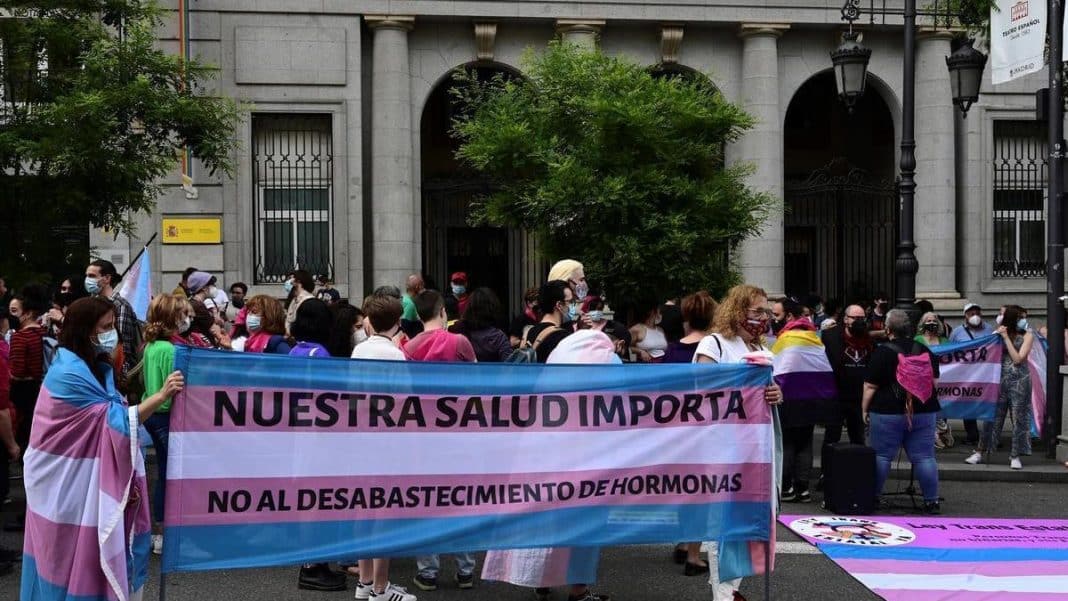The shortage of hormonal drugs for the transgender collective, a recurring issue, has its days numbered. The transgender law will force the Ministry of Health to ensure its “sufficient supply” after the Congress of Deputies has decided to include in the text of the rule an amendment by Más País.
This amendment, which is already part of the report of the bill, is one of the main amendments incorporated this week by the parliamentary groups in their work.
Thus, the law will establish that “the Ministry of Health, through the Spanish Agency of Medicines and Health Products, will ensure the sufficient supply of the most commonly used medicines in hormonal treatments for transgender people and supervise their supply, in order to avoid recurrent episodes of shortages”. Más País defends that this measure constitutes a “broadening of rights” in the law.
Transgender groups point out that stopping taking these drugs for hormone replacement therapies is serious and can have health consequences both physically (bone decalcification or menopause) and emotionally (depression and anxiety). Last year, an episode of shortages led the Ministry of Health to intervene and talk to the pharmaceutical sector to put an end to the lack of stock of medicines. The trans law aims to prevent this from happening again.
Housing, childhood and other changes in transgender law
The final content of the law will be decided on December 12th, when the various parties will have to decide whether to support the controversial PSOE amendments, including the one relating to cutting gender self-determination for minors under 14 and 15 years of age, or keep the wording proposed by the Government. The groups have not been able to agree on the most contentious issues, but did agree on issues such as the supply of hormone treatments.
In total, the report approved to include 23 amendments, two of them compromises agreed by several groups. One of these compromises also addresses health issues, specifically requiring that health care for intersex persons be provided “in accordance with the principles of non-pathologization“.
In addition, at the proposal of the PNV, a change has been introduced to oblige the administrations to guarantee that the LGTBI elderly receive comprehensive protection and care for the promotion of their personal autonomy and active aging that allows them to live a dignified life, as well as gerontological care appropriate to their needs in the health, social and welfare fields.
The problems in the access to housing of the LGTBI collective have been taken into account. According to the European Agency for Human Rights, 18% of LGTBI people have had problems in access to housing and one in three transgender people have suffered homelessness. Faced with this reality, the Lower House has decided to incorporate in the text two amendments by Cs for public authorities to ensure that there is no discrimination in this matter.
And a joint proposal of Unidas Podemos, ERC, Bildu, PNV, Más País, Coalición Canaria, Compromís and BNG has also been included in the text regarding trans children in their school life: underage students who have changed their name in the Civil Registry “have the right to be treated in accordance with that name and the sex and/or gender with which they identify in all activities that take place in the educational sphere”.
For the full article, please visit Diario de Ibiza website here.

